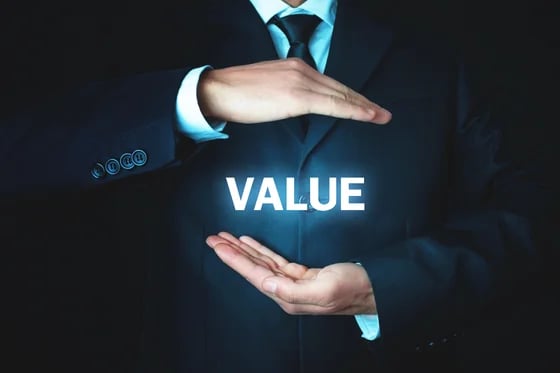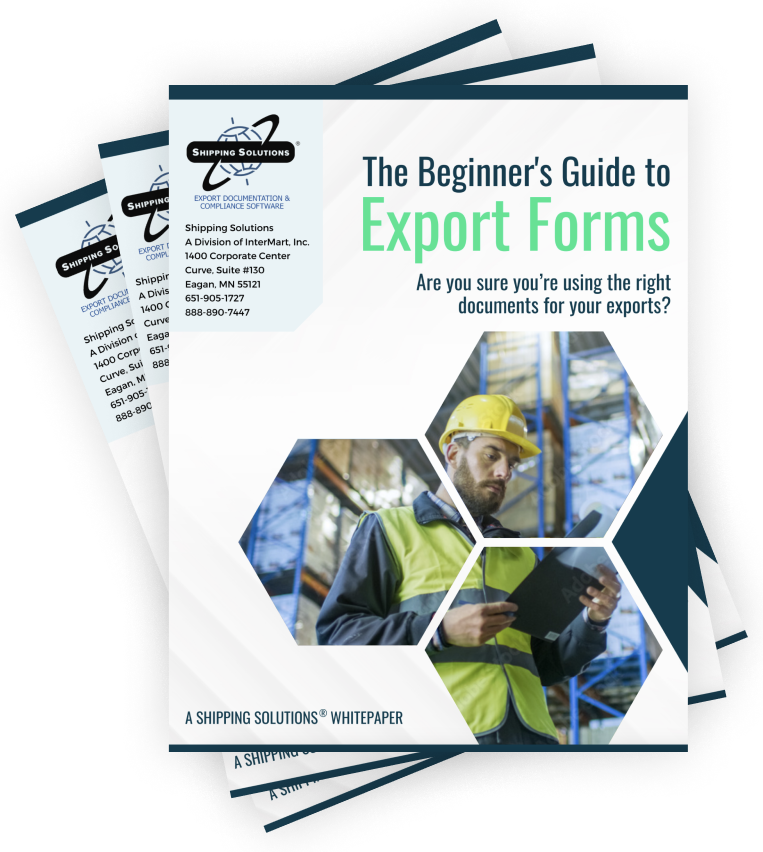The International Trade Blog Export Compliance
What If Customs Disputes Your Export Valuation?
On: March 6, 2024 | By:  Mitch Kostoulakos |
5 min. read
Mitch Kostoulakos |
5 min. read
 Most traders are familiar with the Appraisement Hierarchy for goods imported into the United States. In the event of disputes with U.S. Customs and Border Protection (CBP) about customs valuation, the importer should consult with their customs broker for assistance using well-established procedures. (If you would like to refresh your memory on how to apply the Appraisement Hierarchy, read my article How to Determine Value for U.S. Customs.)
Most traders are familiar with the Appraisement Hierarchy for goods imported into the United States. In the event of disputes with U.S. Customs and Border Protection (CBP) about customs valuation, the importer should consult with their customs broker for assistance using well-established procedures. (If you would like to refresh your memory on how to apply the Appraisement Hierarchy, read my article How to Determine Value for U.S. Customs.)
Exporters face a more complex problem if customs services in destination countries dispute their valuation. Duties and taxes are based on the HTS code, country of origin and valuation. Customs services look for undervalued shipments to both prevent smuggling and assess accurate duties and taxes. Communicating with customs services in other countries is challenging. Every country has different procedures, and customs is likely to notify the Foreign Principal Party in Interest (FPPI), and not necessarily the U.S. exporter, to resolve the issue.
Once notified by customs, the FPPI or their freight forwarder, the exporter must take action by communicating with the customs broker in the destination country. The broker will be working for the FPPI but has an interest in clearing the shipment for their client. Ideally, the USPPI and/or FPPI can provide details about the shipment that may have been lacking on the commercial invoice and may be used to verify the valuation. If using a global freight forwarder, they may be clearing the shipment through their customs brokerage arm, and this could help move things along.
The simplest solution is to accept the valuation stated by the customs service, have the forwarder produce an amended commercial invoice, and pay the duties and taxes. The shipment will accrue handling and storage charges after the minimal free time, so this must be factored into your decision. It may not be worth contesting a small difference in valuation.
What If the Disputed Amount Is High?
If the disputed amount is high and you can’t resolve the issue on your own, check out the WTO agreement on customs valuation or engage your company’s legal department or outside counsel.
The Customs Valuation Agreement of the World Trade Organization (WTO) sets out a fair, uniform and neutral system for determining the value of imported goods on which customs officials levy duties. This system bars the use of arbitrary or fictitious customs values.
The agreement was negotiated during the Uruguay Round of multilateral trade negotiations, which concluded in April 1994. It elaborates and makes more precise Article VII of the Multilateral Agreements on Trade in Goods—GATT 1947, and its official name is: Agreement on Implementation of Article VII of the General Agreement on Tariffs and Trade 1994.
All WTO members are Parties to this Agreement, which entered into force on January 1, 1995, and which has no expiration date.
The agreement states that the primary basis for the customs value of imported goods shall be the “transaction value” of the goods—the price that is actually paid or payable when the goods are sold for export. The payment may be direct or indirect. (An example of an indirect payment would be the settlement by the buyer of a debt owed by the seller.)
The agreement cites certain situations in which the transaction value of imported goods is not acceptable for customs purposes. These arise:
- When there are restrictions (with some exceptions) on the disposition or use of the goods by the buyer.
- When the sale or price of the goods is subject to a condition or consideration for which a value cannot be determined.
- When some part of the proceeds of any subsequent use of the goods by the buyer accrues to the seller.
- Or, with some exceptions, when the buyer and seller are “related” (e.g., they are business partners, employer, employee, officer or director in each other’s company).
For cases in which it is impossible to determine the transaction value of imported goods, the agreement provides for other valuation methods. The first alternative is to set the customs value on the basis of the transaction value of identical goods sold for export to the same country. If there are no identical goods, the customs authorities shall use the transaction value of similar goods sold for export to the same country. If identical or similar goods are not sold for export to the same country, the value of identical or similar goods when sold in the importing country may be used. In the alternative, a computed value may be used; the agreement describes how this value should be calculated. When all else fails, customs authorities shall use “reasonable means consistent with the principles and general provisions of this agreement” to determine the value of the imported goods.
The agreement states that the customs legislation of each WTO member country shall provide for the right of appeal without penalty by importers, initially to the country’s customs administration or an independent body and then to a judicial authority. All laws, regulations, judicial decisions and administrative rulings giving effect to the agreement shall be published.
Where to Seek Help
If your business is being adversely affected because another WTO member country is not complying with the WTO Customs Valuation Agreement, contact the Office of Trade Agreements Negotiations and Compliance at the U.S. Department of Commerce. The center can help you understand your rights under this agreement and can alert the appropriate U.S. government officials to make inquiries, if appropriate, with the other country involved to help you resolve your problem.
Disputes under the Customs Valuation Agreement can also, if necessary, be resolved by the U.S. government through the WTO’s dispute settlement process, which is described in the Exporter’s Guide to the WTO Understanding on the Settlement of Disputes.
The complete text of the WTO Customs Valuation Agreement is available from the Office of Trade Agreements Negotiations and Compliance’s WTO Agreements database.
Like what you read? Join thousands of exporters and importers and subscribe to the International Trade Blog to get the latest news and tips delivered to your inbox.

About the Author: Mitch Kostoulakos
Mitch Kostoulakos is an independent logistics consultant and a Licensed Customs Broker (LCB). He was an award-winning International Executive with FedEx Services before launching Ad Hoc Logistics LLC, and previously held management positions in the LTL industry. Ad Hoc Logistics assists small and medium-sized firms with international logistics and customs issues. Mitch holds the CTL—Certified in Transportation and Logistics designation. His articles have been published in Transportation Journal. He was honored to be appointed to the Standing Committee on International Trade and Transportation of the Transportation Research Board beginning April 2020. TRB is a unit of the National Academies of Sciences, Engineering, and Medicine.



